Several VPN protocols can be used with Windows, including PPTP, which is one of the oldest VPN protocols around at the moment. However, while Windows is compatible with the protocol, it might not always work smoothly.
In this article, we’re taking a look at why Windows 10 isn’t connecting to your PPTP VPN and giving you a few solutions to fix the problem.
Check your internet
The first thing you should do in such situations is check your internet connection. If you’re connected to a WiFi network, check if you have an active internet connection. Otherwise, you can try restarting your router or plugging in via LAN.
Also read: Webpage not available: 9 Fixes
Check your PC’s timezone
Being in the incorrect timezone can often cause problems with VPNs. Check to see if you’re in the correct time zone according to your location.
You can check out this detailed guide on how to change your time zone on Windows here.
Run an SFC scan
Corrupt files in Windows often cause uncalled for errors. Try running an SFC scan to repair any damaged files and check back to see if that solved any problems.
Step 1: Press Windows Key + S to bring up the Cortana/Search box and search for Powershell. Open Windows Powershell from the search results.
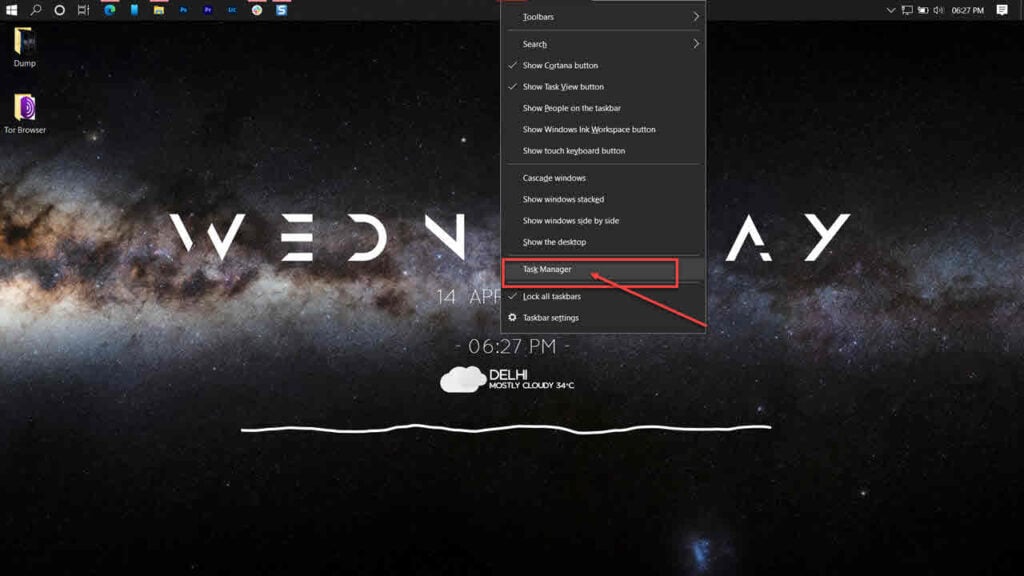
Step 2: Type sfc /scannow to scan your system for issues.
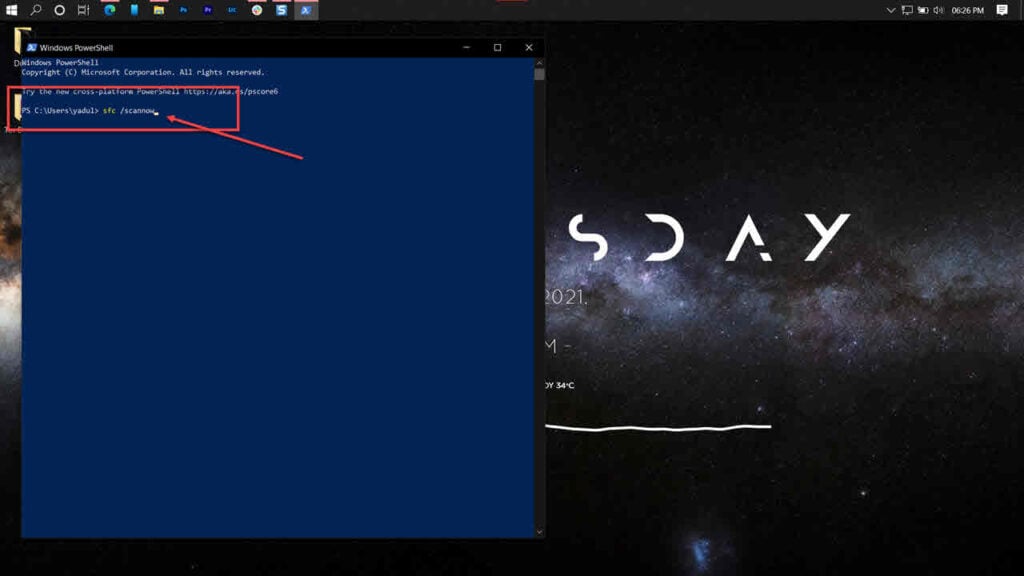
Step 3: If the SFC scan finds any problem, use the following command to resolve them.
DISM /Online /Cleanup-Image /RestoreHealth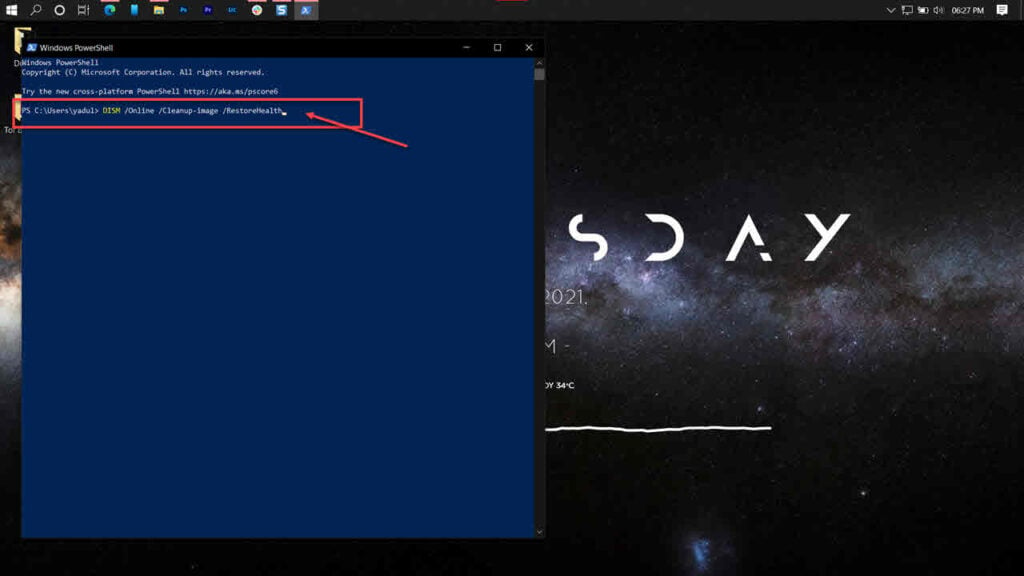
Restart your PC, and the error should be gone.
Also read: How to copy text that cannot be copied? 7 methods explained
Check your network drivers
Your network adaptor’s (WiFi or ethernet) drivers could also be causing connectivity issues. Try connecting to the internet using either an ethernet connection or any other alternatives and follow these steps to get your drivers in place.
Step 1: Press Windows key + R, type in devmgmt.msc and hit enter.
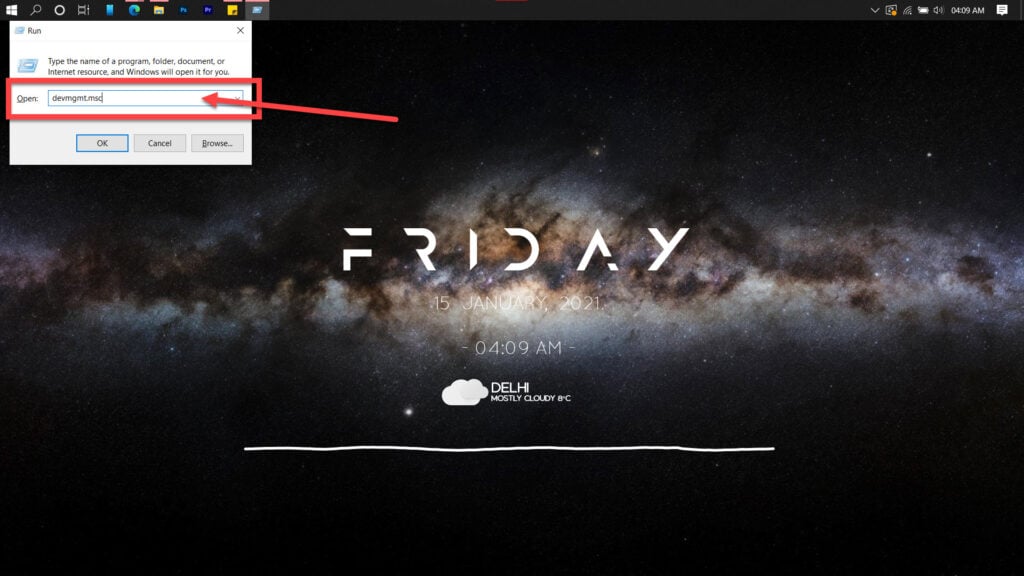
Step 2: Double click Network adaptors to expand it and right click your Wi-Fi card or ethernet adaptor, depending upon what you need to fix. Click on Update driver.
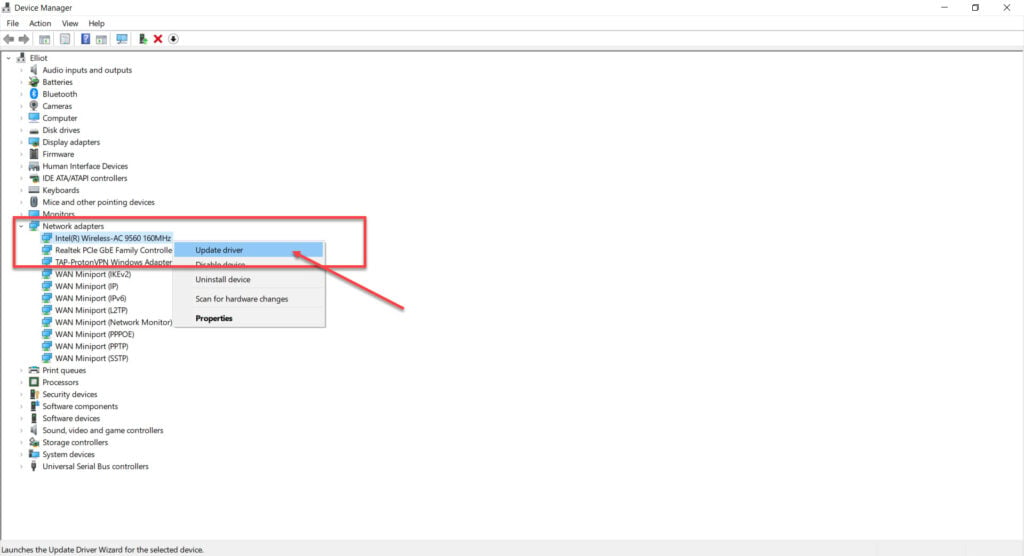
Step 3: Select Search automatically for drivers, and Windows will find and install any available updates.
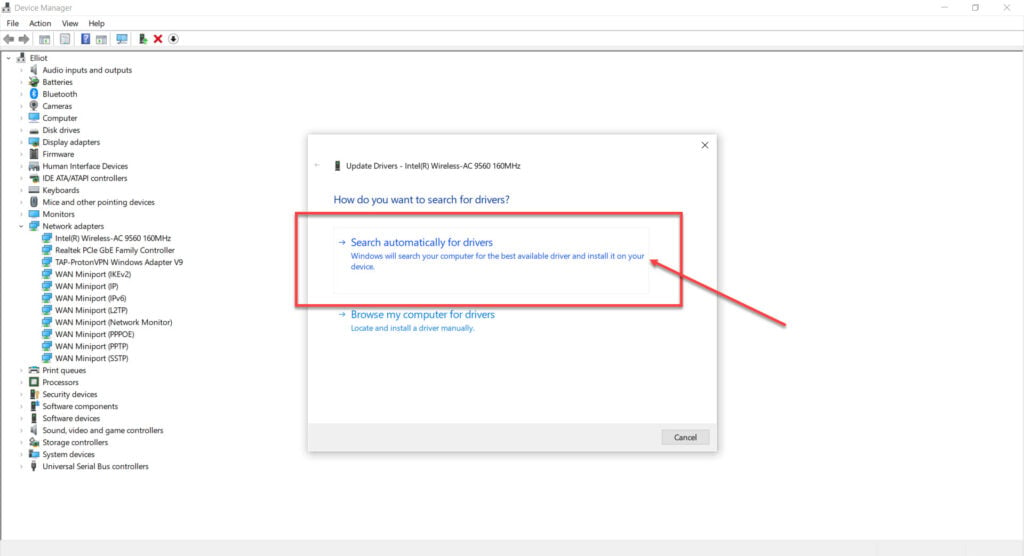
Restart your PC and try again.
Update the OS
Another thing to do is make sure your OS is up to date. Developers usually diagnose these issues based on insider reports or feedback from customers and issue fixes or patches in the form of updates. Check to ensure you’ve got the latest update installed on your system.
You can check out our detailed guide on how to update Windows here
Reinstall your VPN
Try uninstalling your VPN completely and reinstalling the latest version again. That’ll ensure that any corrupt or damaged files or configurations aren’t messing with your connection.
Disable antivirus and any third-party firewalls
Another thing that should be on your diagnostics list is to temporarily disable your antivirus and check if you can share files through your network. If you’re using any third-party firewalls, they can also cause conflict with network communications under the pretext of keeping you safe.
Also read: Windows 11 Print Screen not working for screenshots: 5 Fixes
Add a PPTP rule
Adding a PPTP exception in Windows 10 can also help you get around the situation.
Step 1: Press the Windows key and search for Control Panel. Click the corresponding search result.
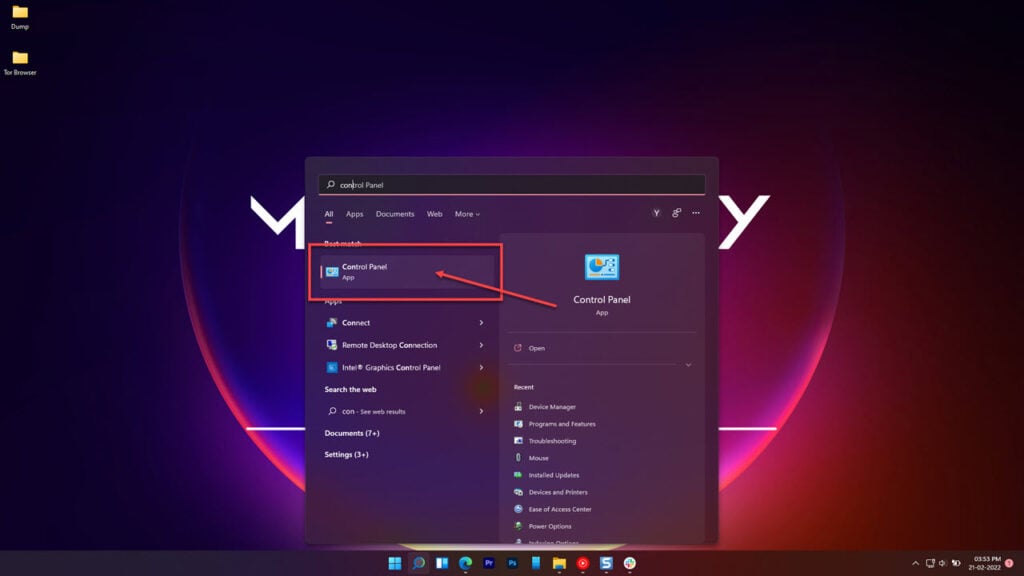
Step 2: Head over to Windows Firewall.
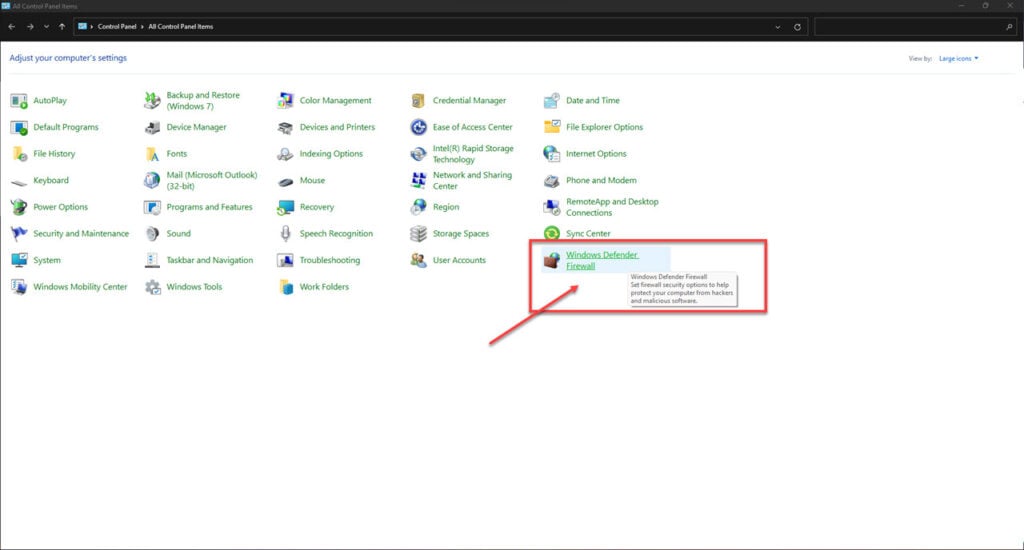
Step 3: Once you’re in the firewall settings menu, click Advanced Settings on the right.
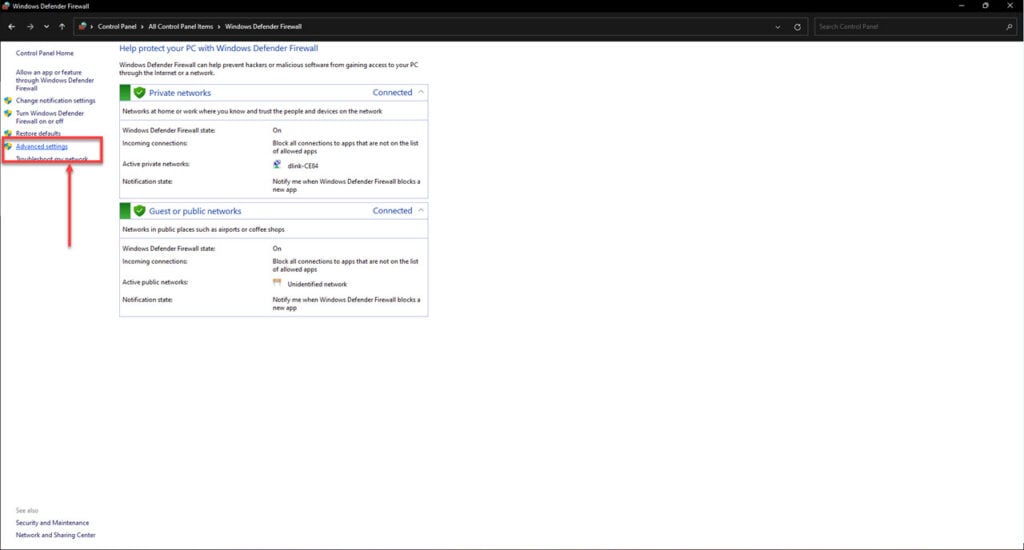
Step 4: Under Inbound Rules, right-click Routing and Remote Access (PPTP-In) and click Enable Rule.

Step 5: Under Outbound Rules, right-click Routing and Remote Access (PPTP-Out) and select Enable Rule.
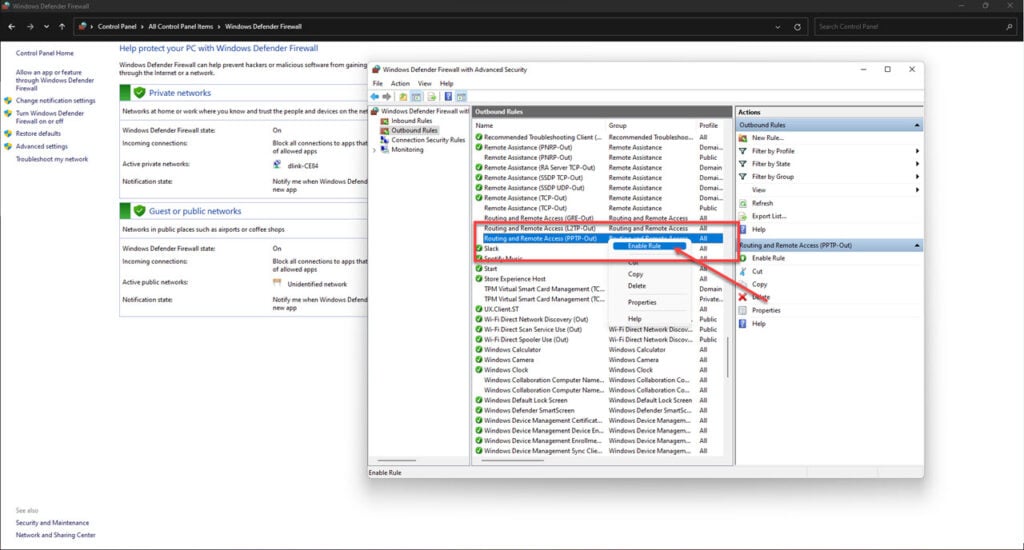
Now restart your PC and try again.
Manually setup PPTP VPN
If nothing else works, try manually setting up a PPTP VPN
Step 1: Press Windows Key + I to open Windows settings. Select Network and Internet.

Step 2: Click VPN.

Step 3: Click Add VPN.

Step 4: Under VPN provider, select Windows (built-in) and VPN Type select Point to Point Tunneling Protocol (PPTP). Enter the rest of your information, and you’re good to go.







